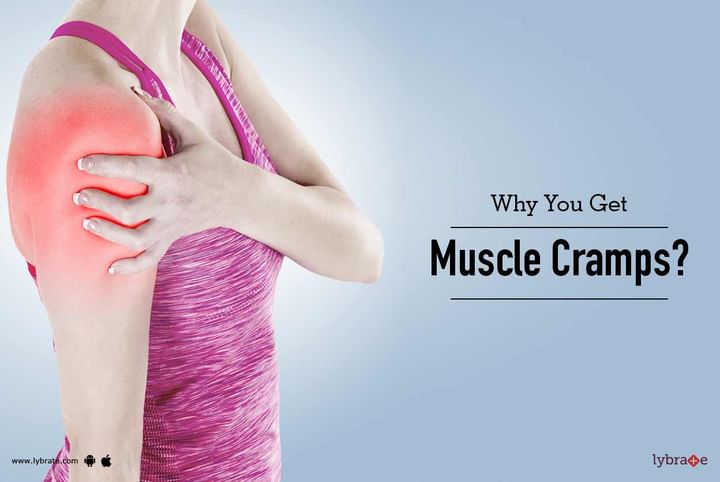Get the App
For Doctors
Login/Sign-up
Last Updated: Jan 10, 2023
BookMark
Report
Why You Get Muscle Cramps?
Dt. Silky MahajanDietitian/Nutritionist • 17 Years Exp.B.Sc. Food & Nutrition, M.Sc. Food & Nutrition
Muscle cramps often occur in the calf muscle of the back of the lower leg. It is often characterized by a momentary sharp pain along with a muscle lump beneath the skin. Just like its sudden appearance, muscle cramp disappears the same way without any botheration. However, a doctor should be consulted if you see any of the following symptoms:
- The pain keeps coming back
- The cramps result in weakening of the muscles
- It causes frequent discomfort
- It results in changed skin color, redness or swelling of the skin
- The condition doesn’t improve with normal care
- Cramps are not associated with obvious causes such as playing, exercising and jogging
What causes muscle cramps?
Any strain on muscle, dehydration, muscle overuse or simply standing for a prolonged time can lead to muscle cramps. The exact cause of muscle cramps is not known in a lot of cases. There could be the following medical conditions that could lead to such muscle cramps:
- Blood supply: At times when the arteries narrow down resulting in an inadequate blood supply in the leg, a sharp pain can be felt followed by muscle cramps. This can happen while exercising or playing. It disappears as soon as one rests their legs.
- Mineral depletion: Shortage of magnesium, potassium and calcium in the body can lead to muscle cramps. Even medication for high blood pressure can lead to cramps in the legs.
- Nerve compression: Nerve compression of the spine can produce sharp pain on the leg muscles. The pain worsens with longer durations of walk. The symptoms, however, can be delayed a bit if the walking posture is changed, like the way one walks while carrying a shopping cart.
What are the risk factors associated to muscle cramps?
- Dehydration: Muscle cramps often happen among athletes when they get dehydrated and fatigued while performing in hot temperature.
- Age: People over the age of 60 often lose mass in the muscle. The remaining mass gets stressed out soon, resulting in muscle cramps.
- Pregnancy: Pregnant women face frequent muscle cramps due to the sudden increase of body weight and restricted movements in the pregnancy period.
- Medical conditions: Certain medical conditions such as nerve disorder, thyroid problems, liver failure, diabetes etc. greatly increase the chance of muscle cramps.
Some common ways to treat muscle cramps:
- A brisk walk followed by stretching relaxes the muscles and greatly helps in staying away from cramps.
- A diet consisting of magnesium on a regular basis gives relief from muscle cramps.
- A wet cloth soaked in hot water often shows magical results and gives instant relief from muscle cramps.
- Being hydrated throughout the day helps with muscle cramps. It is necessary to consume enough amount of electrolytes so that muscle contraction does not happen. If you wish to discuss about any specific problem, you can consult a doctor.



+1.svg)
